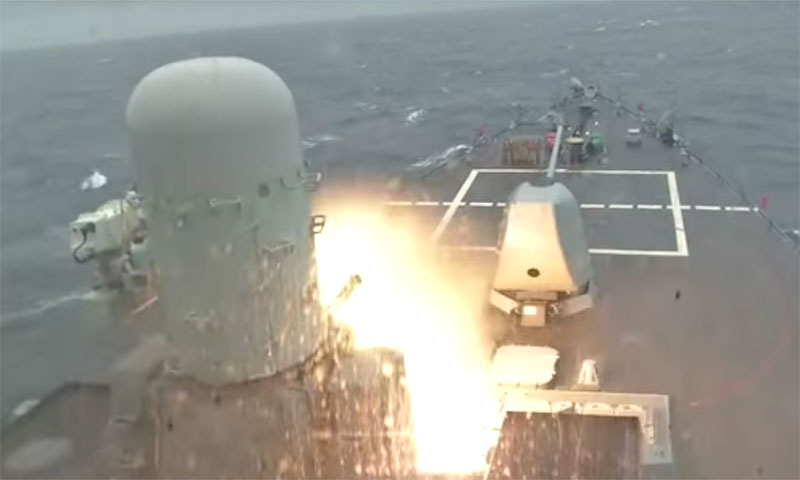Naval Postgraduate School (NPS) students and faculty have an unparalleled opportunity to join a provocative conversation with U.S. and international leaders in the rapidly evolving sphere of maritime air and missile defense.
In collaboration with the Maritime Theater Missile Defense Forum (MTMD-F), NPS will host the Integrated Air and Missile Defense (IAMD) Colloquium, March 4, to engage some of the field’s most pressing issues. Following thought-provoking presentations of current problem sets and panel discussions, the NPS community is invited to exchange views with MTMD-F leadership.
The colloquium is more about generating provocative ideas than tidy answers to these issues, which touch on areas of interest for many students and faculty at NPS, noted retired Navy Capt. John Hammerer, NPS’ Chair of Integrated Air and Missile Defense.
“If you think about how broad NPS’ curricula are and the range of programs we have here, this colloquium is an excellent way to expand understanding of IAMD for everyone,” he said. “Whether you’ve had no experience with [MTMD-F] nations and how they do their operations, or if you’re an engineer and you don’t know much about strategy and policy, or if you’re a strategist and don’t understand how we put ordnance on target, it’s a great place to be.”
Founded in 1999, MTMD-F is a group of 11 member nations continually fostering interoperability in all aspects of maritime air and missile defense, from all things granular and technical to systems integration and interface standards; from tactics, techniques and procedures to strategic doctrine.
It’s not only theoretical, however: MTMD-F also provides testing opportunities to ensure these are a ‘Go’ across the board. In 2015, for example, the guided missile destroyer USS Ross (DDG-71) successfully shot down an incoming missile out of space in the first intercept of a ballistic missile threat in the European theater. The missile had been launched from the Hebrides Range in the United Kingdom, along with four other ballistic missiles, 11 cruise missiles and nine surface-to-air missiles.
The high degree of coordination between ten nations, many moving parts and 5.7 million square miles of tactical data link for this at-sea demonstration validated a baseline for interoperability between the participants, which has only been expanded upon since. The forum has become one of the U.S. Navy’s most effective international partnerships for research and development.
“Notice the MTMD-F name: it’s not a treaty, it’s not a coalition, it’s not even a partnership,” said Hammerer. “It’s just a forum: a practical way for nations that have the capability and interest to cooperate and collaborate in a very collegial way, and it works marvelously.”
The MTMD-F regularly meets to hold working groups and ensure the broad spectrum of its activities are on track. The forum has convened in Paris, London, Bergen, Rome, and now Monterey, Calif.
The Colloquium is part of an MTMD-F conference hosted by NPS in March, the National Point of Contacts (NPOC) Meeting 26-2, which will bring together MTMD-F leadership and representatives from each of the 11 participating nations.
Over three weeks, MTMD-F will conduct classified and unclassified meetings across the range of the group’s activities. Many of these meetings are open to NPS faculty and staff.
“It’s very significant that MTMD-F is coming here to NPS as it highlights our operational and warfighting relevance of NPS.” said Hammerer. “It opens the doors for engagement between MTMD-F and NPS students and faculty who have much to add to the forum.
“It also introduces NPS to a relatively large cross-section of foreign allies and partners,” he continued. “The NPOCs and representatives can perhaps influence their navies and defense departments, saying, ‘You know what? NPS is really not a bad place at all if we want to learn how to do the things that are necessary for theater missile defense.’”
The colloquium is slated to begin at 3:00 p.m. on March 4 in the Mechanical and Aerospace Engineering Auditorium, and end at Herrmann Hall’s renown Trident Room.
“I think this is the start of a beneficial relationship between NPS and MTMD-F,” said Hammerer.


